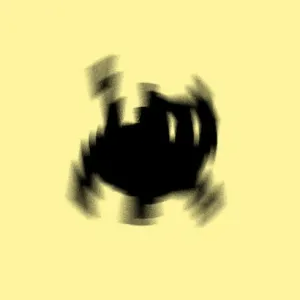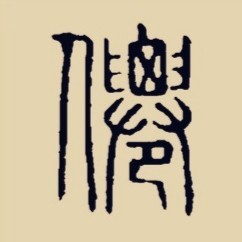take 的反义词
bring loud before dirty luckly luckily 小白2023-08-03 10:34:584
小白2023-08-03 10:34:584
牛津英语关于put,take,make...组成的词组
put away 抛弃;舍弃:put all negative thoughts away.抛弃所有消极的思想put down 1. To write down. 写下来2. To enter in a list. 记入名单3. To bring to an end; repress: 结束;抑制:put down a rebellion.镇压了一起暴乱4. To render ineffective: 制止,取缔:使变得不起作用:put forward To propose for consideration: 提出:提议以供考虑:put forward a new plan.提出一个新计划put in 1. To make a formal offer of: 提交:提出…的正式提议:put in a plea of guilty.正式提出犯罪诉讼2. To interpose: 插入,插话:He put in a good word for me.他插进来为我说了一句好话3. To spend (time) at a location or job: 花时间:在某一场所或工作上花费(时间):The inmate had put in six years at hard labor. She put in eight hours behind a desk.犯人已经做了六年的苦工。她在花了八小时办公put on 1. To clothe oneself with; don: 穿衣服;穿上:put on a coat; put socks on.穿上外衣;穿上袜子2. To apply; activate: 运用;使活动:put on the brakes.刹闸put out 1. To extinguish: 熄灭:put out a fire.扑灭一场大火put up 1. To erect; build. 建立;建造2. To preserve; can: 保存;把…装罐:put up six jars of jam.做六罐果酱put upon To impose on; overburden: 强加于;使…负担过重:He was always being put upon by his friends.他总是受朋友的欺负put through 1. To bring to a successful end: 做成:达到成功的终点:put the project through on time; put through a number of new laws.按时完成了项目;通过许多新法律2. To cause to undergo: 使…从事、遭遇:He put me through a lot of trouble.他使我遇到许多麻烦take after 1. To follow as an example. 仿效:将…作为榜样跟随2. To resemble in appearance, temperament, or character. 相象:在相貌、脾气或性格上相似take apart 1. To divide into parts after disassembling. 拆开:分开后将…分成许多部分2. To dissect or analyze (a theory, for example), usually in an effort to discover hidden or innate flaws or weaknesses. 详细分析研究:肢解或分析(如,一个理论),通常是籍此以发现隐藏的或固有的弊端或缺点3. Slang To beat up; thrash. 【俚语】 狠揍;把…打扁take back To retract (something stated or written). 收回(所说的或所写的事)take down 1. To bring to a lower position from a higher one. 拿下,放下:将…从一个较高的位置拿到一个较低的位置2. To take apart; dismantle: 拆开;拆散:take down the Christmas tree.把圣诞树拆散3. To lower the arrogance or the self-esteem of (a person): 挫…的锐气:压低(一个人的)傲慢或自尊:really took him down during the debate.在辩论中实实在在地煞了他的威风4. To put down in writing. 记下:以书写的形式记录下来的take for 1. To regard as: 把…视作:Do you take me for a fool?你以为我是个傻瓜吗?2. To consider mistakenly: 误认为:Don"t take silence for approval.不要把沉默误认为是同意take in 1. To grant admittance to; receive as a guest or an employee. 让…进入,接纳,吸收:允许…进来;接受…为客人或雇员2. To reduce in size; make smaller or shorter: 收缩:在尺寸上减小;使…变小或为变短:took in the waist on the pair of pants.把裤子的腰身改小一些3. To include or constitute. 包括,构成4. To understand: 理解:couldn"t take in the meaning of the word.不能够理解这个词的含义5. To deceive or swindle: 欺骗,诱骗:was taken in by a confidence artist.被一名骗人的行家给骗了6. To look at thoroughly; view: 详尽地看;注视:took in the sights.饱览各个景色7. To accept (work) to be done in one"s house for pay: 接(活计)在家里做:为获取报酬而接下(在自己家里完成的工作):took in typing.在家的打字活8. To convey (a prisoner) to a police station. 押送(罪犯)去警察局take off 1. To remove, as clothing: 脱掉(衣服等):take one"s coat off; take off one"s galoshes.脱去外衣;脱下套靴2. To release: 放开:took the brake off.松开刹车3. To deduct as a discount: 打折:作为折扣而减价:took 20 percent off.优惠百分之二十4. To carry off or away. 带走5. Slang 【俚语】 6. To go off; leave: 走开;离开:took off in a hurry.匆匆地离去7. To achieve wide use or popularity: 广泛使用,大受欢迎:a new movie that really took off.一部极为卖座的新片8. To rise in flight: 起飞:The plane took off on time.飞机准时起飞9. To discontinue: 取消:took off the commuter special.取消了特殊通勤10. To withhold service due, as from one"s work: 休假:暂时不做(自己工作中的)应做的工作:I"m taking off three days during May.五月份我将会休假三天take on 1. To undertake or begin to handle: 从事,开始对付:took on extra responsibilities.担负了额外的责任2. To hire; engage: 雇;雇佣:took on more workers during the harvest.在收获期间雇了更多的工人3. To oppose in competition: 对抗:在竞争中迎击:a wrestler who took on all comers.一个接受所有新手挑战的摔跤运动员4. Informal To display violent or passionate emotion: 【非正式用语】 激动,大惊小怪:表现出猛烈的或激动的情感:Don"t take on so!别这样大吵大闹!5. To acquire (an appearance, for example) as or as if one"s own: 摆架子,假装:获得(比如,相貌)作为自己的或使它象是自己的:Over the years he has taken on the look of a banker.这些年来他摆出了一副银行家的派头take out 1. To extract; remove: 取出;弄走:took the splinter out.取出木屑2. To secure (a license, for example) by application to an authority. 向机关申请取得:通过向一个权力机关申请来获得(比如,许可证)3. Informal To escort, as a date. 【非正式用语】 陪伴(比如,约会中一方)4. To give vent to: 发泄:Don"t take your frustration out in such an aggressive manner.不要用这样一种积极的方式来发泄你的失意5. To obtain as an equivalent in a different form: 获得平衡:作为一种不同形式的对等物取得:took out the money owed in services.平衡各亏欠服务中心的钱6. Informal To begin a course; set out: 【非正式用语】 开始一段路程;出发:The police took out after the thieves.警方出动警力追捕小偷7. Slang 【俚语】 8. To kill; murder: 杀死;谋杀:Two snipers took out an enemy platoon.两名狙击手消灭了敌人一个排9. To search for and destroy in an armed attack or other such encounter: 在武装攻击或其它类似的方式搜寻并摧毁:Combat pilots, flying low to avoid radar, took out the guerrilla leader"s bunker in a single mission.在一次行动中,战斗机飞行员在低空飞行以躲避雷达,发现并炸毁了游击队领导所在的掩体take to 1. To have recourse to; go to, as for safety: 求救于;(如为了安全)前往:took to the woods.躲到树林里2. To develop as a habit or a steady practice: 养成习惯,沉于:有了…的习惯或开始持续地做:take to drink.染上了酗酒的恶习3. To become fond of or attached to: 喜爱,亲近:喜欢上…或和…变得亲近:“Two keen minds that they are, they took to each other”(&b{Jack Kerouac})“越敏锐的两颗心,越容易互相吸引”(杰克·凯鲁亚克)take up 1. To raise; lift. 举起;升起2. To reduce in size; shorten or tighten: 缩减,改紧:在尺寸上减小;缩短或使…更紧:take up a gown.把一件袍子改短些3. To pay off an (outstanding debt, mortgage, or note). 付清一笔(数目可观的债务、抵押贷款或票据)4. To accept (an option, a bet, or a challenge) as offered. 接受所提供的(一种选择、一笔赌注或一个挑战)5. To begin again; resume: 再次开始;重新开始:Let"s take up where we left off.让我们接着我们停下来的地方重新开始6. To use up, consume, or occupy: 用尽,耗掉或占用:The extra duties took up most of my time.额外工作耗费了我绝大部分时间7. To develop an interest in or devotion to: 喜欢,钟爱:对…产生了兴趣或钟爱:take up mountain climbing.喜欢上登山运动8. To deal with: 处理:Let"s take up each problem one at a time.让我们一个问题一个问题地来解决9. To assume: 摆出:took up a friendly attitude.摆出友好的态度10. To absorb or adsorb: 吸收,吸附:crops taking up nutrients.正在吸收养分的作物11. To enter into (a profession or business): 开始从事(一项职业或行当):took up engineering.干起了工程设计这一行make for 1. To have or cause to have a particular effect or result: 造成,促成:有或促使有某种特定的效果或者结果的:small details that make for comfort.令人舒适的小节2. To help promote; further: 帮助提升;推进:makes for better communication.促进更好的交流make off To depart in haste; run away. 急忙离开;跑走make out 1. To discern or see, especially with difficulty: 辨明:辨明或看清,特别是在有困难的情况下:I could barely make out the traffic signs through the rain.在雨中我几乎看不清交通标志2. To understand: 理解:could not make out what she was saying.不能理解她在说些什么3. To write out; draw up: 写下来;列出:made out the invoices.开具发票4. To fill in (a form, for example). 填写(如表格)5. Informal To imply or suggest: 【非正式用语】 暗示,建议:You make me out to be a liar.你暗示我不要说谎6. Informal To try to establish or prove: 【非正式用语】 试图建立或者证明:He made out that he was innocent.他试图证明自己是无辜的7. To get along in a given way; fare: 进展:在给定的道路上前进;进展:made out well in business.在生意上进展顺利make over 1. To redo; renovate. 改装;革新2. To change or transfer the ownership of, usually by means of a legal document: 转让:改变或者转移所有权,通常是通过法律文件的方式:made over the property to her son.把财产转到她儿子名下make up 1. To put together; construct or compose: 整理;建立或捏造:make up a prescription.开一个药方2. To constitute; form: 构成;组成:One hundred years make up a century.一百年构成一个世纪3. To alter one"s appearance for a role on the stage, as with a costume and cosmetics. 化妆:为在舞台上的角色而改变某人的外表,例如用服装或化妆品4. To apply cosmetics. 用化妆品化妆5. To devise as a fiction or falsehood; invent: 捏造,编造:杜撰小说或谎话;捏造:made up an excuse.编造借口6. To make good (a deficit or lack): 弥补:弥补(赤字或不足):made up the difference in the bill.弥补了帐单上的差额7. To compensate for: 补偿:make up the lost time.补足失去的时间8. To resolve a quarrel: 和好:平息一场争吵:kissed and made up.亲吻和好9. To make ingratiating or fawning overtures. Used withto : 献殷勤,巴结:提出献殷勤或讨好的建议。和to 连用: made up to his friend"s boss.向他朋友的老板献殷勤10. To take (an examination or a course) again or at a later time because of previous absence or failure. 补考,补课:因为以前缺席或不及格在一段时间后再考或再上课11. To set in order: 整理,收拾:make up a room.把房间收拾好12. Printing To select and arrange material for: 【印刷术】 排版,整版:made up the front page.为封面排版make a face To distort the features of the face; grimace. 改变脸部的容貌;扮鬼脸make believe To pretend. 假装make eyes To ogle. 向…送秋波make fun of To mock; ridicule. 嘲笑;嘲讽 瑞瑞爱吃桃2023-08-03 10:33:141
瑞瑞爱吃桃2023-08-03 10:33:141
make 跟take的区别是?
make 做take 拿走你要看他们在某些句子中有啥区别? 韦斯特兰2023-08-03 10:32:596
韦斯特兰2023-08-03 10:32:596
take part in 与 join和join in的区别
1)join有两个用法:(1)指加入某个党派,团体组织等,成为其成员之一,意为:“参军、入团、入党”等.如:①When did your brother join the army?你哥哥什么时候参军的?②She joined the Young Pioneers.她加入了少先队.(2)和某人一道做某事,其结构为:join sb.in (doing) sth.,根据上下文,in (doing) sth.也可以省去.如:①Will you join us in the discussion?你参加我们的讨论吗?②He”ll join us in singing the song.他将和我们一道唱歌.③We”re going to the East Lake Park on Sunday.Will you join us?我们打算星期天去东湖公园.你跟我们一道去好吗?2)join in多指参加小规模的活动如“球赛、游戏”等,常用于日常口语.如:①Come along,and join in the ball game.快,来参加球赛.②Why didn”t you join in the talk last night?昨晚你为什么没参加座谈?3)take part in 指参加会议或群众性活动等,着重说明句子主语参加该项活动并在活动中发挥作用. 韦斯特兰2023-08-03 10:30:552
韦斯特兰2023-08-03 10:30:552
jion、join in、take part in、attend、enter辨析
这几个词或短语都有“参加”的意思,但用法不同。1)join有两个用法:(1)指加入某个党派,团体组织等,成为其成员之一,意为:“参军、入团、入党”等。如:①When did your brother join the army? 你哥哥什么时候参军的?②She joined the Young Pioneers. 她加入了少先队。(2)和某人一道做某事,其结构为:join sb. in (doing) sth.,根据上下文,in (doing) sth. 也可以省去。如:①Will you join us in the discussion? 你参加我们的讨论吗?②He"ll join us in singing the song. 他将和我们一道唱歌。③We"re going to the East Lake Park on Sunday. Will you join us?我们打算星期天去东湖公园。你跟我们一道去好吗?2)join in多指参加小规模的活动如“球赛、游戏”等,常用于日常口语。如:①Come along, and join in the ball game. 快,来参加球赛。②Why didn"t you join in the talk last night? 昨晚你为什么没参加座谈?3)take part in 指参加会议或群众性活动等,着重说明句子主语参加该项活动并在活动中发挥作用。如:①We"ll take part in social practice during the summer vacation.暑假期间我们将参加社会实践。②We often take part in physical labour. 我们经常参加体力劳动。【注意】take part in是惯用词组,part前一般不用冠词,但part前有形容词修饰时,要用不定冠词。如:①Lincoln took an active part in polities and was strongly against slavery.林肯积极参加政治活动,强烈反对奴隶制。4)attend是正式用语,及物动词,指参加会议,婚礼,葬礼,典礼;去上课,上学,听报告等。句子的主语只是去听,去看,自己不一定起积极作用。如:①He"ll attend an important meeting tomorrow.他明天要参加一个重要的会议。②I attended his lecture. 我听了他的讲课。 u投在线2023-08-03 10:30:531
u投在线2023-08-03 10:30:531
take part in与join ,join in的区别
take part in, join和join in 都有“参加”的意思,可是它们之间还有很大的区别: take part in take part in 意为“参加,参与(某事物或某活动,如movement, revolution, meeting, conference, conversation, war等)”。例如: Switzerland didn"t take part in this war. 瑞士没有参加这次战争。 How many countries will take part in the World Cup? 有多少个国家要参加世界杯? join join意为“参加(某组织),加入(某处任职),参加到某个人群中去,从而成为其中一员”。例如: She joined a health club. 她参加了一个健身俱乐部。 We both joined the Labor Party. 我们俩都加入了工党。 join in join in sth. / doing sth.意为“参加”,后面接的宾语一般是表示竞赛、娱乐、游戏等活动的名词或V-ing。例如: Can I join in the game? 我可以参加这个游戏吗? They all join in singing the song. 他们一起唱这首歌。 练习:用take part in, join和join in的适当形式填空。 1. My brother the army in 2002. 2. I didn"t want to their argument. 3. May I the competition? 4. We are playing football. Do you want to ? 5. You are welcome to us. 参考答案:1. joined 2. take part in 3. join in 4. join in 5. join 左迁2023-08-03 10:30:511
左迁2023-08-03 10:30:511
take part in,join 和join in 的区别
join和 take part in 二者都有“参加”的意思,但用法有所不同.join多指参加某组织,成为其中的一个成员.而take part in指参加活动.join指加入某党派、某组织或某社会团体,以及参军等,还可表示参与某种活动.例句:①I will never forget the day when I joined the Party.我永远也忘不了入党的那一天.②Will you join us for dinner?请你和我们一起吃饭好吗?take part in指参加群众性活动、会议、劳动、游行等,往往指参加者持有积极的态度,起一份作用,有时与join in可互换.例句:①Will you take part in the English evening?同我们一起参加英语晚会好吗?②All the students took an active part in the thorough cleaning.所有的学生都积极参加了大扫除.③We should take an active part in school activities.我们应该积极参加学校的活动.join in通常指参加某种活动,尤其指和其他人一起参加某项活动.例句:①May I join in the game?我可以参加这个比赛吗?②I hope you”ll all join in the discussion.我希望你们大家都参加讨论.如果说"与某人一起做某事"、"和……在一起"则用join sb.in sth./doing sth..例句:①Would you join me in a walk?和我一起去散步好吗?②Will you join us in a game of cards?你愿意和我们一起玩牌吗?③I”ll join you in a few minutes.我过几分钟将和你在一起. 黑桃花2023-08-03 10:30:511
黑桃花2023-08-03 10:30:511
join、join to 和take part in 的区别是什么?
这几个词或短语都有“参加”的意思,但用法不同。1)join有两个用法:(1)指加入某个党派,团体组织等,成为其成员之一,意为:“参军、入团、入党”等。如:①When did your brother join the army? 你哥哥什么时候参军的?②She joined the Young Pioneers. 她加入了少先队。(2)和某人一道做某事,其结构为:join sb. in (doing) sth.,根据上下文,in (doing) sth. 也可以省去。如:①Will you join us in the discussion? 你参加我们的讨论吗?②He"ll join us in singing the song. 他将和我们一道唱歌。③We"re going to the East Lake Park on Sunday. Will you join us?我们打算星期天去东湖公园。你跟我们一道去好吗?2)join in多指参加小规模的活动如“球赛、游戏”等,常用于日常口语。如:①Come along, and join in the ball game. 快,来参加球赛。②Why didn"t you join in the talk last night? 昨晚你为什么没参加座谈?3)take part in 指参加会议或群众性活动等,着重说明句子主语参加该项活动并在活动中发挥作用。如:①We"ll take part in social practice during the summer vacation.暑假期间我们将参加社会实践。②We often take part in physical labour. 我们经常参加体力劳动。【注意】take part in是惯用词组,part前一般不用冠词,但part前有形容词修饰时,要用不定冠词。如:①Lincoln took an active part in polities and was strongly against slavery.林肯积极参加政治活动,强烈反对奴隶制。4)attend是正式用语,及物动词,指参加会议,婚礼,葬礼,典礼;去上课,上学,听报告等。句子的主语只是去听,去看,自己不一定起积极作用。如:①He"ll attend an important meeting tomorrow.他明天要参加一个重要的会议。②I attended his lecture. 我听了他的讲课。 Jm-R2023-08-03 10:30:491
Jm-R2023-08-03 10:30:491
join和join in和take part in的区别
区别详见以下解释:1. take part in 参加,参与part前不用冠词,但part前有形容词修饰时,要加不定冠词, 如 take an active part in指参加会议或群众性活动等,着重说明句子主语参加该项活动并在活动中发挥作用。如: We often take part in physical labour. 我们经常参加体力劳动。 He will take part in an important race across the Atllantic. 他将参加一次重大的横渡大西洋的比赛。2. join 加入某个党派,军队、团体组织等,成为其成员之一,意为“参军、入团、入党”,如: He joined the army last year. 他去年参军了。加入某人去做某事,join sb. in (doing) sth.Would you like to join us? 你愿意加入我们吗?3. join in多指参加小规模的活动如“球赛、游戏”等,常用于日常口语。 Come along, and join in the ball game. 快,来参加球赛。 Why didn"t you join in the talk last night? 昨晚你为什么没参加座谈? 4. attend是正式用语,指参加会议,婚礼,葬礼,典礼;去上课,上学,听报告等。句子的主语只是去听,去看,自己不一定起积极作用。 He"ll attend an important meeting tomorrow. 他明天要参加一个重要的会议。 I attended his lecture. 我听了他的讲课。 此后故乡只2023-08-03 10:30:489
此后故乡只2023-08-03 10:30:489
join in, join in, take part in, attend的用法有什么区别
join/ join in/ take part in/attend这三个词组在汉语中都表示“参加”,但在英语使用中是有区别的:(1)join通常指参加某种固定的组织、团队、军队等,强调成为其中一员。He joined the party in 1927.他1927年入党。(2)join sb. (in) doing sth.“和某人一起干某事”。Why not join us in buying Susan gift?为什么不和我们一起去给苏珊买礼物呢?(3)join in表示“参加某项活动”时,和take part in 可换用,但前者侧重娱乐、欣赏,而后者更侧重身体力行,参加在其中。例:She has never joined/ taken part in such an interesting game.她从未参加过这么有趣的游戏。(4)take part in 指参加各种活动,包括文娱、体育、比赛、斗争、罢工等。如:Are you going to take part in/ join in the discussion?你要参加讨论吗?(5)这几组词都是瞬间动词(终止性动词),用于完成时的句子时不能跟延续的时间状语连用。如:He has joined the league for five years. (×)He has been a league member for five years. (√)他入团已经有5年了。(6)attend原意指出席,即出席会议:attend the meeting 阿啵呲嘚2023-08-03 10:30:481
阿啵呲嘚2023-08-03 10:30:481
take part in和join in的区别
take part in 一般指参加某事物、某活动比如:take part in the World Cup join in 一般指参加某种竞赛、游戏等比如:join in the game多放到语境中,能帮助理解 铁血嘟嘟2023-08-03 10:30:484
铁血嘟嘟2023-08-03 10:30:484
join in,take part in与join的用法的区别
take part in take part in 意为“参加,参与(某事物或某活动,如movement, revolution, meeting, conference, conversation, war等)”。例如: Switzerland didn"t take part in this war. 瑞士没有参加这次战争。 How many countries will take part in the World Cup? 有多少个国家要参加世界杯? join join意为“参加(某组织),加入(某处任职),参加到某个人群中去,从而成为其中一员”。例如: She joined a health club. 她参加了一个健身俱乐部。 We both joined the Labor Party. 我们俩都加入了工党。 join in join in sth. / doing sth.意为“参加”,后面接的宾语一般是表示竞赛、娱乐、游戏等活动的名词或V-ing。例如: Can I join in the game? 我可以参加这个游戏吗? They all join in singing the song. 他们一起唱这首歌。 小菜G的建站之路2023-08-03 10:30:461
小菜G的建站之路2023-08-03 10:30:461
take part in与join in有何区别
两者都一样,可以互换 gitcloud2023-08-03 10:30:453
gitcloud2023-08-03 10:30:453
take part in, join, join in, be in区别?详细!
join +组织、团体,机构 join in the army/clubjoin sb in doing sth Can i join you in playing football ?take part in+活动 take part in the Olympic Gamesbe in 成为 Be in a member of the club FinCloud2023-08-03 10:30:453
FinCloud2023-08-03 10:30:453
join.join in .take part in .attend.这些单词用法的区别
1) join 表示“加入党派,组织、社团、俱乐部”等。如:join the Party/Youth League/army/club/organization入党/入团/参军/加入俱乐部/加入组织。Would yo join us(in) singing? 和我们一起唱歌吧!His brother joined the army a year ago. 他哥哥一年前参军了。Join还可表示“来(去)和某人呆在一起,把……连在一起”I will join you in a few minutes. 我一会就过来。Please join the two ends of the rope together. 把绳子两头接起来。2) join in 表示“参加正在进行的活动”。如:join in a game /discussion/conversation/walk/talk参加游戏/讨论/谈话/一起散步/一起讨论。亦可说:join sb. in (doing)sth.表示“加入某人一起做某事”。3) take part in 表示“参加会议、活动”,侧重说明主语参加并发挥一定作用,part 前若有修饰语,要用不定冠词。如:take (an active)part in a party/school activities/physical labour(积极)参加聚会/学校活动/体力劳动。4) attend 表示“出席、参加会议、仪式、婚礼、葬礼、典礼、上课、上学、听报告”。如:attend a meeting/a sports meeting/a concer/a show/school/a lecture参加会议/运动会/出席音乐会/出席展览会/上学/听演讲。 大鱼炖火锅2023-08-03 10:30:452
大鱼炖火锅2023-08-03 10:30:452
是JOIN SB 还是JOIN IN SB ,JOIN, JOIN IN,TAKE PART IN 有什么区别?
join sb. 指加入某人(与其一起从事某事),也可用于加入组织,如joint the company.take part in是参加什么活动 再也不做站长了2023-08-03 10:30:442
再也不做站长了2023-08-03 10:30:442
join 和join in和take park in的区别
公婆现实主义文学月9号线一期工程施工现场表演现场表演的时候我也是醉了,我们的生活方式是什么时候回来呀,我们的确是一 可桃可挑2023-08-03 10:30:426
可桃可挑2023-08-03 10:30:426
join, join in, take part in的区别
答:join,ue80bjoin in和take part in 1)加入某党派、某组织或某社会团体,用join,不可用join in.如:①He will never forget the day when he joined the Party.他永远也忘不了他入党的那一天.②His brother joined the army three years ago.他哥哥是三年前参军的.join还可解释为“连接”.如:①The railway joined the two cities.铁路把两个城市连接起来了.②The two clauses are joined by a conjunction.两个分句由一个连词连接起来.2)说参加某种活动用join in,如说“与其人一起做某事”,则用join sb.in sth./ doing sth..如:①May I join in the game?我可以参加这个游戏吗?②Come and join us in the discussion.来和我们一起讨论吧!③We are having supper now.ue80bWould you like to join us?我们正在吃晚饭,你也来和我们一起吃好吗?join in多指参加小规模的活动如“球赛、游戏”等,常用于日常口语.如:①Come along,and join in the ball game.快,来参加球赛.②Why didn"t you join in the talk last night?昨晚你为什么没参加座谈?3)take part in参加(群众性活动、会议等),往往指参加者持积极态度.起一份作用.如:①A great number of students took part in May 4 Movement.大批学生参加了五四运动.②We are going to have an English evening.Do you want to take part?我们准备举办一个英语晚会,你想参加吗?③How many of you are going to take part?你们多少人准备参加?④All the students took an active part in the thorough cleaning.所有的学生都积极参加了大扫除.【注意】take part in是惯用词组,part前一般不用冠词,但part前有形容词修饰时,要用不定冠词.如:Lincoln took an active part in polities and was strongly against slavery.林肯积极参加政治活动,强烈反对奴隶制.enjoy--get pleasure from;take delight in.“享受...之乐趣;乐于”.例如:I"ve enjoyed talking to you about old times.我很高兴曾经和你叙旧.like(vt.vi.)--be fond of;have a taste for; find satisfactory or agreeable.“喜欢;喜爱;爱好” 例如:Do you like fish?你喜欢鱼吗?I like to read in bed but I don"t like having meals in bed.我喜欢躺在床上看书,但我不喜欢在床上吃饭.at the end of“在……末端(尽头);在……末(底)”可表示时间,也可表示地点.后面可以跟名词或相当于名词的词.在句中作时间状语,可以放在句子开头,也可以放在句子末尾.例如:There is a post office at the end of the road.在路的尽头有一家邮局.At the end of last week,we had a class meeting.到上个星期末,我们开了一次班会.at last=in the end=finally“最后;终于”,后面不接任何单词,在句中作时间状语,一般放在句子开头.例如:At last/Finally,they won the football match.他们终于赢了这场足球比赛.We walked three hours.At last/In the end,we got to the park.我们走了三个小时.最后我们终于到达了公园.及物动词 vt.1.出席,参加He did not attend the meeting yesterday.昨天他没有参加会议.2.上(大学等),前往The school was attended almost entirely by local children.上这个学校读书的几乎全是当地的孩子.3.照料;护理;侍候There was no one to attend him but Tina.除了蒂娜,再无人照顾他了.4.伴随,带有5.陪同,护送不及物动词 vi.1.出席,参加[(+at)]2.照料,处理[(+to)]I"ll attend to the matter.我来处理此事.3.护理;侍候[(+on/upon)]4.注意,倾听;致力(于)[(+to)]She didn"t attend to what I was saying.她并不注意听我所说的话.attend主要用于参加比较重要的场合与会议 凡尘2023-08-03 10:30:401
凡尘2023-08-03 10:30:401
jion ,jion in,take part in的区别
简单说来,take part in 同join in的用法基本等同,都指参加活动,只不过take part in更书面化,而jion in 更多用于口语. 而jion多指参加某种组织,比如说党派,俱乐部等 所以说jion us 和jion in us 表达的意思是不一样的,具体用什么看你的语境. jion us(我们举办某种活动,比如生日party,你来参加) jion in us(我们建立了某个组织,比如一个社团,或者一个同好会,请你来加入) 能稍微体会到它们之间的不同了么? 无尘剑
2023-08-03 10:30:401
无尘剑
2023-08-03 10:30:401
take part in 和 join in的区别。
一,take part in/join in都能接 something或者doing sth。但是要接sb,要用join in with sb。二,take part in表示参加某个活动或者事情,而且比较积极地参加。join in一般指娱乐活动或者赛事,而且参加的时候活动已经开始了。 左迁2023-08-03 10:30:3810
左迁2023-08-03 10:30:3810
请问 join , join in,take part in 在用法上有什么区别?
take part in后加大型活动join意为参加join in 后加小型活动 gitcloud2023-08-03 10:30:375
gitcloud2023-08-03 10:30:375
take part in 与 join和join in的区别
join,join in,take part in 的用法比较这几个词或短语都有“参加”的意思,但用法不同.1)join有两个用法:(1)指加入某个党派,团体组织等,成为其成员之一,意为:“参军、入团、入党”等.如:①When did your brother join the army?你哥哥什么时候参军的?②She joined the Young Pioneers.她加入了少先队.(2)和某人一道做某事,其结构为:join sb.in (doing) sth.,根据上下文,in (doing) sth.也可以省去.如:①Will you join us in the discussion?你参加我们的讨论吗?②He”ll join us in singing the song.他将和我们一道唱歌.③We”re going to the East Lake Park on Sunday.Will you join us?我们打算星期天去东湖公园.你跟我们一道去好吗?2)join in多指参加小规模的活动如“球赛、游戏”等,常用于日常口语.如:①Come along,and join in the ball game.快,来参加球赛.②Why didn”t you join in the talk last night?昨晚你为什么没参加座谈?3)take part in 指参加会议或群众性活动等,着重说明句子主语参加该项活动并在活动中发挥作用.如:①We”ll take part in social practice during the summer vacation.暑假期间我们将参加社会实践.②We often take part in physical labour.我们经常参加体力劳动.【注意】take part in是惯用词组,part前一般不用冠词,但part前有形容词修饰时,要用不定冠词.如:①Lincoln took an active part in polities and was strongly against slavery.林肯积极参加政治活动,强烈反对奴隶制. 小白2023-08-03 10:30:354
小白2023-08-03 10:30:354
join,join in和take part in的区别
"join", "join in" 和 "take part in" 都是表示参加某个活动的词语,它们之间的区别如下:"Join" 表示加入某个组织、团队或团体,也可以表示参加某个活动或事件。例如:I want to join the basketball team.(我想加入篮球队。)Can I join you for lunch?(我能和你一起吃午饭吗?)"Join in" 表示加入别人正在进行的活动或事件中,并参与其中。例如:Can I join in the game?(我能参加这个游戏吗?)He joined in the singing with enthusiasm.(他热情地加入了唱歌活动。)"Take part in" 表示参加某个活动或事件,并且是积极参与其中的。例如:She took part in the school play as the lead actress.(她作为女主角参加了校园剧演出。)Many people took part in the marathon race last weekend.(上周末很多人参加了马拉松比赛。)总的来说,这三个词语都表示参加活动或事件,但是使用时有细微的差别,具体根据语境和意图来选择使用哪个词语。 水元素sl2023-08-03 10:30:312
水元素sl2023-08-03 10:30:312
哪首英文歌女生唱的有一句是dj dj dj.......take me take me n
dj 舞曲 take my hand dj kajjin feat mimi.mp3 左迁2023-08-02 14:52:433
左迁2023-08-02 14:52:433
bymistake和byaccident有什么区别和联系
都表示一种没有预料到。by mistake是误操作,和本意相违背,有种“错误”的意义在里面by accident是意外地,不一定“对错”。 拌三丝2023-08-02 10:28:142
拌三丝2023-08-02 10:28:142
take a look around中文歌词 翻译
All the teachin" in da world today 现在这个世界上所有的教条 All the little girls fillin" up da world today 世界上全是小女孩(这句话有其他含义??) When the good comes to bad, the bad comes to good 当所有一切都在改变,混沌不清的时候 But I"m a live my life like i should 我想我仍然会按照我自己原有的生活过下去 Now da critics wanna hit it 现在这些批评家都抨击它 This hit? How we did it, just because they don"t get it 抨击?呵~他们抨击只是因为他们什么都不了解 But I"ll stay fitted, new era commited 我要保持我原有的样子,就算是新的时代也会将此记录下来 Now this red cap gets a rap from these critics 现在,他们受到批评家们深重的打击。。。(这句话如何讲...) But do we always gotta cry 那我们只能哭泣? Do we always gotta live inside a lie 我们要一直默默的生活在这种天大的谎言里面吗? Life"s just a blast cuz its movin" really fast 生活像一股强劲的气流,他变化得如此快而强烈 So ya better stay on top or life"ll kick you in the ass 所以你最好乖乖站在高出安全的地方,否则生活一定会打击你让你大出洋相 Follow me into a solo 跟着我走上一条孤单的小路 Remember that, kid, so whatcha wanna do And where ya gonna run when your stari"n down the cable of my mic Pointed at yo grill like a gun Limp Bizkit is rockin" the set It"s like russian roulette when you"re placin" your bet 所以,记住这个,孩子 当你连上麦克风的线准备开始的时候, 你会想做什么,想往什么样的方向奔跑 把铁架当成一把枪? Limp Bizkit(某乐队)正在敲击着他们的音乐 这就像你在俄罗斯轮盘赌里面挥置色子那种令人兴奋痴迷的感觉一样 (这段也不太理解,翻译不好见谅~~) So don"t be upset when you"re broke and you"re done 所以当你跌倒失败的时候也不要沮丧 Cuz I"m a be the one till I jet 因为会一直是我(...对于这句我表示无奈) I know why you wanna hate me 我知道为什么你要恨我 I know why you wanna hate me I know why you wanna hate me Cuz hate is all the world has even seen lately 你恨得只是这个世界变得太快连自己都没有察觉到 And now you wanna hate me And now you wanna hate me Now I Know why you wanna hate me Cuz hate is all the world has even seen lately Now I Know why you wanna hate me Cuz hate is all the world has even seen lately Does anybody really know the secret 是不是每个人都知道了这个秘密 Or the combination for this life and where they keep it 生活中这些个复杂的关系,到底是怎么联系到一起的? It"s kinda sad when you don"t know the meaning 如果你不知道这个秘密的话一定会感到悲伤 But everything happens for a reason 每一件事发生必定都有它存在的理由 I don"t even know what i should say 呵~我甚至不知道我现在我应该说什么 Cuz I"m an idiot, a loser 因为我是一个蠢蛋,一个失败者 A microphone abuser 也是一个疯狂的音乐人 I analyze every second I exist 我仔细思考着我存活着的每一秒的意义 Beatin" up my mind every second with my fist 用拳头打着自己的胸口这样我才能维持心脏的跳动 And everybody wanna run 每个人都想逃跑 Everybody wanna hide from da gun 每个人都想躲避危险的追击 You can dig a rat through this life if you want 如果你想的话你可以在生活中挖个洞,纠出一个混蛋 But you can"t dig the edge off a knife (no sir) (这句话理解不了了 sorry) And now you want your money back 现在你想要金钱 But you"re denied, cuz your brain"s fried from the sack 别否认,因为你的脑子除了问题 And there aint nothin" i could do 我帮不了你什么 Cuz life is a lesson, you"ll learn it when you"re through 因为生活就像是一节课,当生命结束的时候,你一定会学到很多 I know why you wanna hate me I know why you wanna hate me I know why you wanna hate me Cuz hate is all the world has even seen lately And now you wanna hate me And now you wanna hate me Now I know why you wanna hate me Cuz hate is all the world has even seen lately Now... I... know... why (now I know why you wanna hate me) Now I know why you wanna hate me Now I know why you wanna hate me Now I know why you wanna hate me Cuz hate is all the world has even seen lately Cuz hate is all the world has even seen lately Cuz hate is all the world has even seen lately 剩下的就不知道了 康康map2023-08-02 10:16:532
康康map2023-08-02 10:16:532
go to hospital , have a cold, Peter, doctor, have a rest, have a fever, take some medicine 用这些词
造不了 墨然殇2023-07-30 09:31:295
墨然殇2023-07-30 09:31:295
求中文歌词: United Road(Take Me Home) 2011曼联新队歌 The World Red Army 歌词
I was born to be United,Daddy told me, when I was just a baby;When I was five, I went down Warwick Road;Now I"m addicted to the only place I"ll goChorusTake me home,United Road,To the place I belong,To Old Trafford,To see United,Take me home, United RoadAll my memories,Bobby Charlton,Georgie Best and Cantona,They came to us from heaven;And at the Nou Camp in 1999,On Matt Busby"s birthday,Oh it was party timeChorusI watch the Reds,I feel the noise,The crowd is roaring;The Stretford End is singingAnd the fans are going wild;And when I"m gone I get a feelingThat I should"ve been home yesterday,Yesterday, oh!Chorus x2 铁血嘟嘟2023-07-29 20:06:394
铁血嘟嘟2023-07-29 20:06:394
from now on,i will expect nothing,and just take what i get.什么意思
from now on,i will expect nothing,and just take what i get. 翻译:从现在开始,我将不再期待什么,只是拿我所得到的。from now on [英][fru0254m nau u0254n][美][fru028cm nau028a ɑn]adv. 从现在开始; 从此; 从今以后; 往后; 例句:No words can describe the horror I felt, when I realized what my life was going to be like from now on.当我意识到我的生活从此之后便是这个模样,我就产生一种不可名状的恐惧。from now on从今往后,一般用于一般将来时。expect 英 [u026ak"spekt; ek-] 美 [u026ak"spu025bkt]vi. 期待;预期 vt. 期望;指望;认为;预料 例句:Don"t expect me to come and visit you there. 别指望我会去那儿看你。 LuckySXyd2023-07-29 20:04:574
LuckySXyd2023-07-29 20:04:574
Great changes have taken place in our school and it is no longer____it used to be. A when ...
D 考查表语从句。从句it used to be缺表语用连接代词what,“我们学校发生了巨大变化,不再是过去的样子了”选D。 苏萦2023-07-29 20:03:361
苏萦2023-07-29 20:03:361
take a ride on the boat for several days
You can take a ride on the boat for several days.翻译:你可以用这只船来游览几天. 2011-10-24 7:27:58 铁血嘟嘟2023-07-28 11:41:441
铁血嘟嘟2023-07-28 11:41:441
英文歌女声的 高潮部分是啊 啊啊啊啊啊啊 to take me take me your are
Britney的till the world ends 拌三丝2023-07-26 10:29:452
拌三丝2023-07-26 10:29:452
pay attention to 和take care of 区别
payattentionto和takecareof的区别在于:payattentionto是把注意力集中在...payattentionto一般用于比较正式的场合,关注……;注意……;留意……;用法:payattentiontosth/doingsth 【例句】pleasepayattentiontothefollowingpoints.请注意下列几点。takecareof是照顾;处理的意思,更偏向“照顾”这个意思,而且照顾的对象一般是老人。用法:takecareofsb【例句】he"stooyoungtotakecareofhimself. 他年龄太小,照顾不了自己。 九万里风9
2023-07-26 10:02:412
九万里风9
2023-07-26 10:02:412
pay attention to 和take notice of的区别
这就是attention和notice之间的区别之一,第二是notice还有“通知”的意思! 阿啵呲嘚2023-07-26 10:01:502
阿啵呲嘚2023-07-26 10:01:502
take courage for sb 是什么意思呢?
给某人鼓励 豆豆staR2023-07-26 09:34:415
豆豆staR2023-07-26 09:34:415
pay,cost,spend,take的区别?
一、对应的主语不同spend和pay的主语只能是人;take与cost的主语是物或事;take后接时间时,主语也可以是人。take和cost还可以用动词不定式或动词不定式短语作真实主语,而it为形式主语。二、被动结构不同spend,take,pay都可用于被动结构,而cost不能用于被动结构。搭配的内容不同三、pay的后面,只接金钱;cost的搭配范围最宽,除接金钱和时间外,还可接财富、健康、职位甚至生命等。扩展资料:具体用法(一)pay(paid,paid)因为pay表示“支付,付款”的意思,所以它的主语都是人,宾语都是钱。需要注意的是,它一般都会跟介词for搭配使用,用法为:sb.paymoneyforsth.。如:Ipaidfivedollarsforthebook.(二)cost(cost,cost)因为cost作为名词表示“成本”的意思,所以用作动词之后,就表示某物“花费”了某人多少钱。因此,它的主语往往是物。其句型用法为:sth.+cost+sb.+money。如:Thebookcostmefivedollars.(三)spend(spent,spent)spend的主语一般都是人,但其后的宾语可能是时间,也可能是金钱。此外,其宾语后面往往会继续跟上补语,而补语成分有两种情况,即:1、sb.+spend+money/time+on+sth.,如:Ispentfivedollarsonthebook.ispentthreehoursonmyhomework.2、sb.+spend+money/time+(in)doingsth.,其中的in经常省略掉,如:Ispentfivedollarsbuyingthebook.Ispentthreehoursdoingmyhomework.(四)take(took,taken)take表示“花费”时,一般是指某物或某事花了某人多长时间,其主语有两种情况:1、主语是花费某人时间的某物或某事时,其句型用法为:sth.+take+sb.+time,如:Buildingthehousetookthemfivemonths.Themeetingtookustwohours.2、当take后面还有第二个动词时,主语一般采用形式主语it,这时后面的第二个动词一般采用不定式todo结构,而且这个不定式才是真正的主语,其句型用法为:It+take+sb.+time+todosth.,如:Ittookthemfivemonthstobuildthehouse.Ittookmetwohourstogettothestation. 韦斯特兰2023-07-25 17:19:4810
韦斯特兰2023-07-25 17:19:4810
"speed,cost,take,pay for"的语法区别
spend,cost,take和pay都可以表示“花费”,但用法却不尽相同。 spend的主语必须是人, 常用于以下结构:(1) spend time /money on sth. 在……上花费时间(金钱)。例:I spent two hours on this maths problem. 这道数学题花了我两个小时。(2) spend time / money (in) doing sth. 花费时间(金钱)做某事。例:They spent two years (in) building this bridge. 造这座桥花了他们两年时间。(3)spend money for sth. 花钱买……。例:His money was spent for books. 他的钱用来买书了。 cost的主语是物或某种活动, 还可以表示“值”, 常见用法如下:(1)sth. costs (sb.) +金钱,某物花了(某人)多少钱。例:A new computer costs a lot of money. 买一台新电脑要花一大笔钱。(2) (doing) sth. costs (sb.) +时间,某物(做某事)花了(某人)多少时间。例:Remembering these new words cost him a lot of time. 他花了大量时间才记住了这些单词。 注意:cost的过去式及过去分词都是cost,并且不能用于被动句。 take后面常跟双宾语, 常见用法有以下几种:(1) It takes sb. +时间+to do sth. 做某事花了某人多少时间。例:It took them three years to build this road. 他们用了三年时间修完了这条路。(2)doing sth. takes sb. +时间,做某事花了某人多少时间。例:Repairing this car took him the whole afternoon. 他花了一下午修车。 pay的基本用法是:(1) pay (sb.) money for sth. 付钱(给某人)买……。例:I have to pay them 20 pounds for this room each month. 我每个月要付20英磅的房租。(2)pay for sth. 付……的钱。例:I have to pay for the book lost. 我不得不赔丢失的书款。(3)pay for sb. 替某人付钱。例:Don?蒺t worry!I"ll pay for you. 别担心, 我会给你付钱的。(4)pay sb. 付钱给某人。 例: They pay us every month.他们每月给我们报酬。(5)pay money back 还钱。例:May I borrow 12 yuan from you? I"ll pay it back next week. 你能借给我12块钱吗?下周还你。(6)pay off one"s money还清钱。 此后故乡只2023-07-25 17:19:441
此后故乡只2023-07-25 17:19:441
take,pay,spend,cost的用法
pay forspend onsth. cost sb. some moneyit takes sb. sometime to do sth LuckySXyd2023-07-25 17:19:434
LuckySXyd2023-07-25 17:19:434
cost、expend、spend、take这几个词的区别有什么,以及固定搭配?
您好!cost、expend、spend、take用法区别及固定搭配如下:cost作动词本意是:使...付出,一般是物做主语,cost表示某物花费了某人多少钱,固定搭配:sth. cost sb. $例句:The ring cost him 100,000 dollars.The task could cost you your life.这项任务可能让你没命。spend(过去式spent):花费,有固定词组:spend $ on sth./ (in) doing sth.例句:I spent 30 yuan on this book.I spent 4 days reading this book.(in可加可不加)spend表达的花费之意可以指花费金钱,也可以指花费时间、精力。expend 及物动词花费 [在…上],消耗 [on,upon,in]We ~ed much time and effort on the experiment.我们在该项实验上花费了不少时间和精力We ~ed a great deal of time and care in doing the work.我们做那件事花了许多时间和心血。take指做一件事、走一段路等所需的时间。sth.takes some time (to do sth.)或者用形式主语it takes sb. some time to do sth.举例说明:谢谢!希望能帮助您! 小白2023-07-25 17:18:541
小白2023-07-25 17:18:541
take,cost,spent有什么区别?
spend,cost,take和pay的区别是历年中考试题的必考内容之一,虽然它们都可以表示“花费”,但用法却不尽相同。 spend的主语必须是人, 常用于以下结构:(1) spend time /money on sth. 在……上花费时间(金钱)。例:I spent two hours on this maths problem. 这道数学题花了我两个小时。(2) spend time / money (in) doing sth. 花费时间(金钱)做某事。例:They spent two years (in) building this bridge. 造这座桥花了他们两年时间。(3)spend money for sth. 花钱买……。例:His money was spent for books. 他的钱用来买书了。 cost的主语是物或某种活动, 还可以表示“值”, 常见用法如下:(1)sth. costs (sb.) +金钱,某物花了(某人)多少钱。例:A new computer costs a lot of money. 买一台新电脑要花一大笔钱。(2) (doing) sth. costs (sb.) +时间,某物(做某事)花了(某人)多少时间。例:Remembering these new words cost him a lot of time. 他花了大量时间才记住了这些单词。 注意:cost的过去式及过去分词都是cost,并且不能用于被动句。 take后面常跟双宾语, 常见用法有以下几种:(1) It takes sb. +时间+to do sth. 做某事花了某人多少时间。例:It took them three years to build this road. 他们用了三年时间修完了这条路。(2)doing sth. takes sb. +时间,做某事花了某人多少时间。例:Repairing this car took him the whole afternoon. 他花了一下午修车。 pay的基本用法是:(1) pay (sb.) money for sth. 付钱(给某人)买……。例:I have to pay them 20 pounds for this room each month. 我每个月要付20英磅的房租。(2)pay for sth. 付……的钱。例:I have to pay for the book lost. 我不得不赔丢失的书款。(3)pay for sb. 替某人付钱。例:Don?蒺t worry!I"ll pay for you. 别担心, 我会给你付钱的。(4)pay sb. 付钱给某人。 例: They pay us every month.他们每月给我们报酬。(5)pay money back 还钱。例:May I borrow 12 yuan from you? I"ll pay it back next week. 你能借给我12块钱吗?下周还你。(6)pay off one"s money还清钱。 spend/cost/pay/take (1)spend的主语通常是人,往往用于以下句型: (sb)spend some money/some time on sth. (sb)spend some money/some time(in)doing sth.例如: I spent fifty yuan on the coat. = I spent fifty yuan (in) buying the coat. 我花50元买了这件大衣。 He spent three days on the work. = He spend three days (in) doing the work. 我干这项工作用了3天。 (2)take常用于“占用、花费”时间,其主语通常为形式主语“it”或物。句式是: It takes/took sb.some time to do sth=Sth.takes sb.some time. 例如: It took me three years to draw the beautiful horses. 画这些漂亮的马花费了我3年时间。 The work will take me two days.这项工作花了2天时间。 (3) pay为“付款、赔偿”之意,主语通常是人,往往是sb. pays some money for sth或pay sb.(some money for sth) 例如: I paid fifty yuan for the coat.我花50元买了这件大衣。 He has paid the doctor 50 pounds for the medicine? 他买药已付医生50英镑。 How much did you pay him? 你付他多少钱? (4) cost的主语必须是某物。spend … on sth./in doing sth.的主语必须是人。pay … for 的主语也是人。It takes + sb.+ 时间(或钱)to do sth.的主语则必须是形式主语It。 动词cost的常用用法是sth.cost (sb.) some money。麻烦给个好评哈,只是举手之劳而已。 LuckySXyd2023-07-25 17:18:081
LuckySXyd2023-07-25 17:18:081
spend和take的用法(各5种) 如题目所示,和的用法,要有例句.
spend,cost,take和pay都可以表示“花费”,但用法却不尽相同. spend的主语必须是人,常用于以下结构:(1) spend time /money on sth.在……上花费时间(金钱).例:I spent two hours on this maths problem.这道数学题花了我两个小时.(2) spend time / money (in) doing sth.花费时间(金钱)做某事.例:They spent two years (in) building this bridge.造这座桥花了他们两年时间.(3)spend money for sth.花钱买…….例:His money was spent for books.他的钱用来买书了. cost的主语是物或某种活动,还可以表示“值”,常见用法如下:(1)sth.costs (sb.) +金钱,某物花了(某人)多少钱.例:A new computer costs a lot of money.买一台新电脑要花一大笔钱.(2) (doing) sth.costs (sb.) +时间,某物(做某事)花了(某人)多少时间.例:Remembering these new words cost him a lot of time.他花了大量时间才记住了这些单词. 注意:cost的过去式及过去分词都是cost,并且不能用于被动句. take后面常跟双宾语,常见用法有以下几种:(1) It takes sb.+时间+to do sth.做某事花了某人多少时间.例:It took them three years to build this road.他们用了三年时间修完了这条路.(2)doing sth.takes sb.+时间,做某事花了某人多少时间.例:Repairing this car took him the whole afternoon.他花了一下午修车. pay的基本用法是:(1) pay (sb.) money for sth.付钱(给某人)买…….例:I have to pay them 20 pounds for this room each month.我每个月要付20英磅的房租.(2)pay for sth.付……的钱.例:I have to pay for the book lost.我不得不赔丢失的书款.(3)pay for sb.替某人付钱.例:Don?蒺t worry!I"ll pay for you.别担心,我会给你付钱的.(4)pay sb.付钱给某人.例:They pay us every month.他们每月给我们报酬.(5)pay money back 还钱.例:May I borrow 12 yuan from you?I"ll pay it back next week.你能借给我12块钱吗?下周还你.(6)pay off one"s money还清钱 凡尘2023-07-25 17:18:081
凡尘2023-07-25 17:18:081
take与cost有什么区别?
cost主要指花钱,花时间.Sth cost sb some time/money. take主要指花费时间. It takes sb some time to do sth. 凡尘2023-07-25 17:17:215
凡尘2023-07-25 17:17:215
cost,spend,pay,take的区别
Cost花费主语是物,spend的主语是人,后面有两个形式,一个是in Doing,一个是on 加名词pay主语是人后面有for。Take it takes sb to do something. CarieVinne 2023-07-25 17:17:202
CarieVinne 2023-07-25 17:17:202
cost和take的用法区别是什么?
"Cost"和"Take"都是描述花费的动词,但它们的语法结构和意义略有不同。具体来说:- "Cost"指的是某个东西需要付出多少代价才能得到。它通常后面跟随一个金钱数量,表示需要花费多少钱来买某个东西。例如,"I bought the new phone for $800. It cost me a lot of money"(我花了800美元买了这部新手机。这真是一大笔开销)。- "Take"指的是某个活动或完成某个任务需要使用的时间、力量或资源。它通常后面跟随一个时间或者数额,表示需要花费多少时间或者其他资源来完成这件事情。例如,"It takes me two hours to finish this work"(我需要两小时才能完成这项工作)。简而言之,"cost"和"take"通常表示不同类型和方面的花费:前者指金钱花费,后者则指时间、精力或其他资源。 tt白2023-07-25 17:17:191
tt白2023-07-25 17:17:191
spend,cost,take和pay的区别北京四中网校
spend,cost,take和pay的区别是历年中考试题的必考内容之一,虽然它们都可以表示“花费”,但用法却不尽相同. spend的主语必须是人, 常用于以下结构:(1) spend time /money on sth. 在……上花费时间(金钱).例:I spent two hours on this maths problem. 这道数学题花了我两个小时.(2) spend time / money (in) doing sth. 花费时间(金钱)做某事.例:They spent two years (in) building this bridge. 造这座桥花了他们两年时间.(3)spend money for sth. 花钱买…….例:His money was spent for books. 他的钱用来买书了. cost的主语是物或某种活动, 还可以表示“值”, 常见用法如下:(1)sth. costs (sb.) +金钱,某物花了(某人)多少钱.例:A new computer costs a lot of money. 买一台新电脑要花一大笔钱.(2) (doing) sth. costs (sb.) +时间,某物(做某事)花了(某人)多少时间.例:Remembering these new words cost him a lot of time. 他花了大量时间才记住了这些单词. 注意:cost的过去式及过去分词都是cost,并且不能用于被动句. take后面常跟双宾语, 常见用法有以下几种:(1) It takes sb. +时间+to do sth. 做某事花了某人多少时间.例:It took them three years to build this road. 他们用了三年时间修完了这条路.(2)doing sth. takes sb. +时间,做某事花了某人多少时间.例:Repairing this car took him the whole afternoon. 他花了一下午修车. pay的基本用法是:(1) pay (sb.) money for sth. 付钱(给某人)买…….例:I have to pay them 20 pounds for this room each month. 我每个月要付20英磅的房租.(2)pay for sth. 付……的钱.例:I have to pay for the book lost. 我不得不赔丢失的书款.(3)pay for sb. 替某人付钱.例:Don?蒺t worry!I"ll pay for you. 别担心, 我会给你付钱的.(4)pay sb. 付钱给某人. 例: They pay us every month.他们每月给我们报酬.(5)pay money back 还钱.例:May I borrow 12 yuan from you? I"ll pay it back next week. 你能借给我12块钱吗?下周还你.(6)pay off one"s money还清钱. spend/cost/pay/take (1)spend的主语通常是人,往往用于以下句型: (sb)spend some money/some time on sth. (sb)spend some money/some time(in)doing sth.例如: I spent fifty yuan on the coat. = I spent fifty yuan (in) buying the coat. 我花50元买了这件大衣. He spent three days on the work. = He spend three days (in) doing the work. 我干这项工作用了3天. (2)take常用于“占用、花费”时间,其主语通常为形式主语“it”或物.句式是: It takes/took sb.some time to do sth=Sth.takes sb.some time. 例如: It took me three years to draw the beautiful horses. 画这些漂亮的马花费了我3年时间. The work will take me two days.这项工作花了2天时间. (3) pay为“付款、赔偿”之意,主语通常是人,往往是sb. pays some money for sth或pay sb.(some money for sth) 例如: I paid fifty yuan for the coat.我花50元买了这件大衣. He has paid the doctor 50 pounds for the medicine? 他买药已付医生50英镑. How much did you pay him? 你付他多少钱? (4) cost的主语必须是某物.spend … on sth./in doing sth.的主语必须是人.pay … for 的主语也是人.It takes + sb.+ 时间(或钱)to do sth.的主语则必须是形式主语It. 动词cost的常用用法是sth.cost (sb.) some money. 可桃可挑2023-07-25 17:16:361
可桃可挑2023-07-25 17:16:361
Cost与take的区别是什么
cost的主语是物或某种活动,还可以表示“值”,常见用法如下:(1)sth.costs (sb.) +金钱,某物花了(某人)多少钱。例:A new computer costs a lot of money.买一台新电脑要花一大笔钱。(2) (doing) sth.costs (sb.) +时间,某物(做某事)花了(某人)多少时间.例:Remembering these new words cost him a lot of time.他花了大量时间才记住了这些单词。注意:cost的过去式及过去分词都是cost,并且不能用于被动句。take后面常跟双宾语,常见用法有以下几种:(1) It takes sb.+时间+to do sth.做某事花了某人多少时间.例:It took them three years to build this road.他们用了三年时间修完了这条路。(2)doing sth.takes sb.+时间,做某事花了某人多少时间.例:Repairing this car took him the whole afternoon.他花了一下午修车。 康康map2023-07-25 17:16:362
康康map2023-07-25 17:16:362
“take,cost,spend和paid”的区别是什么?
选B。这是cost的特定用法,意思是“做某事花费某人多少钱财”。spend,cost,take和pay都可以表示“花费”,但用法却不尽相同。 spend的主语必须是人, 常用于以下结构:(1) spend time /money on sth. 在……上花费时间(金钱)。例:I spent two hours on this maths problem. 这道数学题花了我两个小时。(2) spend time / money (in) doing sth. 花费时间(金钱)做某事。例:They spent two years (in) building this bridge. 造这座桥花了他们两年时间。(3)spend money for sth. 花钱买……。例:His money was spent for books. 他的钱用来买书了。 cost的主语是物或某种活动, 还可以表示“值”, 常见用法如下:(1)sth. costs (sb.) +金钱,某物花了(某人)多少钱。例:A new computer costs a lot of money. 买一台新电脑要花一大笔钱。(2) (doing) sth. costs (sb.) +时间,某物(做某事)花了(某人)多少时间。例:Remembering these new words cost him a lot of time. 他花了大量时间才记住了这些单词。 注意:cost的过去式及过去分词都是cost,并且不能用于被动句。 take后面常跟双宾语, 常见用法有以下几种:(1) It takes sb. +时间+to do sth. 做某事花了某人多少时间。例:It took them three years to build this road. 他们用了三年时间修完了这条路。(2)doing sth. takes sb. +时间,做某事花了某人多少时间。例:Repairing this car took him the whole afternoon. 他花了一下午修车。 pay的基本用法是:(1) pay (sb.) money for sth. 付钱(给某人)买……。例:I have to pay them 20 pounds for this room each month. 我每个月要付20英磅的房租。(2)pay for sth. 付……的钱。例:I have to pay for the book lost. 我不得不赔丢失的书款。(3)pay for sb. 替某人付钱。例:Don?蒺t worry!I"ll pay for you. 别担心, 我会给你付钱的。(4)pay sb. 付钱给某人。 例: They pay us every month.他们每月给我们报酬。(5)pay money back 还钱。例:May I borrow 12 yuan from you? I"ll pay it back next week. 你能借给我12块钱吗?下周还你。(6)pay off one"s money还清钱。 小白2023-07-25 17:15:561
小白2023-07-25 17:15:561
spend,cost,take和pay分别是什么意思?
spend,cost,take和pay都可以表示“花费”,但用法却不尽相同。 spend的主语必须是人, 常用于以下结构:(1) spend time /money on sth. 在……上花费时间(金钱)。例:I spent two hours on this maths problem. 这道数学题花了我两个小时。(2) spend time / money (in) doing sth. 花费时间(金钱)做某事。例:They spent two years (in) building this bridge. 造这座桥花了他们两年时间。(3)spend money for sth. 花钱买……。例:His money was spent for books. 他的钱用来买书了。 cost的主语是物或某种活动, 还可以表示“值”, 常见用法如下:(1)sth. costs (sb.) +金钱,某物花了(某人)多少钱。例:A new computer costs a lot of money. 买一台新电脑要花一大笔钱。(2) (doing) sth. costs (sb.) +时间,某物(做某事)花了(某人)多少时间。例:Remembering these new words cost him a lot of time. 他花了大量时间才记住了这些单词。 注意:cost的过去式及过去分词都是cost,并且不能用于被动句。 take后面常跟双宾语, 常见用法有以下几种:(1) It takes sb. +时间+to do sth. 做某事花了某人多少时间。例:It took them three years to build this road. 他们用了三年时间修完了这条路。(2)doing sth. takes sb. +时间,做某事花了某人多少时间。例:Repairing this car took him the whole afternoon. 他花了一下午修车。 pay的基本用法是:(1) pay (sb.) money for sth. 付钱(给某人)买……。例:I have to pay them 20 pounds for this room each month. 我每个月要付20英磅的房租。(2)pay for sth. 付……的钱。例:I have to pay for the book lost. 我不得不赔丢失的书款。(3)pay for sb. 替某人付钱。例:Don?蒺t worry!I"ll pay for you. 别担心, 我会给你付钱的。(4)pay sb. 付钱给某人。例: They pay us every month.他们每月给我们报酬。(5)pay money back 还钱。例:May I borrow 12 yuan from you? I"ll pay it back next week. 你能借给我12块钱吗?下周还你。(6)pay off one"s money还清钱。 bikbok2023-07-25 17:15:551
bikbok2023-07-25 17:15:551
spend和cost/take的区别
spend主语为人 NerveM
2023-07-25 17:15:533
NerveM
2023-07-25 17:15:533
cost,take,worth的用法区别
cost的主语是物或某种活动, 还可以表示“值”, 常见用法如下:(1)sth. costs (sb.) +金钱,某物花了(某人)多少钱。例:A new computer costs a lot of money. 买一台新电脑要花一大笔钱。(2) (doing) sth. costs (sb.) +时间,某物(做某事)花了(某人)多少时间。例:Remembering these new words cost him a lot of time. 他花了大量时间才记住了这些单词。 注意:cost的过去式及过去分词都是cost,并且不能用于被动句。 take后面常跟双宾语, 常见用法有以下几种:(1) It takes sb. +时间+to do sth. 做某事花了某人多少时间。例:It took them three years to build this road. 他们用了三年时间修完了这条路。(2)doing sth. takes sb. +时间,做某事花了某人多少时间。例:Repairing this car took him the whole afternoon. 他花了一下午修车。 be worth sthbe worth doing be worthy of being donebe worthy to be done NerveM
2023-07-25 17:14:161
NerveM
2023-07-25 17:14:161
cost 和 take 有什么区别?
cost的主语是物或某种活动, 还可以表示“值”, 常见用法如下:(1)sth. costs (sb.) +金钱,某物花了(某人)多少钱。例:A new computer costs a lot of money. 买一台新电脑要花一大笔钱。(2) (doing) sth. costs (sb.) +时间,某物(做某事)花了(某人)多少时间。例:Remembering these new words cost him a lot of time. 他花了大量时间才记住了这些单词。 注意:cost的过去式及过去分词都是cost,并且不能用于被动句。 take后面常跟双宾语, 常见用法有以下几种:(1) It takes sb. +时间+to do sth. 做某事花了某人多少时间。例:It took them three years to build this road. 他们用了三年时间修完了这条路。(2)doing sth. takes sb. +时间,做某事花了某人多少时间。例:Repairing this car took him the whole afternoon. 他花了一下午修车。 meira2023-07-25 17:13:401
meira2023-07-25 17:13:401
关于花费:cost,spend,take和pay for 四个词的用法和区别,要详细的解释。。。
不知道 可桃可挑2023-07-25 17:13:391
可桃可挑2023-07-25 17:13:391
cost pay spend和take的区别
spend,cost,take和pay的区别是历年中考试题的必考内容之一,虽然它们都可以表示“花费”,但用法却不尽相同. spend的主语必须是人,常用于以下结构:(1) spend time /money on sth. 在……上花费时间(金钱).例:I spent two hours on this maths problem. 这道数学题花了我两个小时.(2) spend time / money (in) doing sth. 花费时间(金钱)做某事.例:They spent two years (in) building this bridge. 造这座桥花了他们两年时间.(3)spend money for sth. 花钱买…….例:His money was spent for books. 他的钱用来买书了. cost的主语是物或某种活动, 还可以表示“值”, 常见用法如下:(1)sth. costs (sb.) +金钱,某物花了(某人)多少钱.例:A new computer costs a lot of money. 买一台新电脑要花一大笔钱.(2) (doing) sth. costs (sb.) +时间,某物(做某事)花了(某人)多少时间.例:Remembering these new words cost him a lot of time. 他花了大量时间才记住了这些单词. 注意:cost的过去式及过去分词都是cost,并且不能用于被动句. take后面常跟双宾语, 常见用法有以下几种:(1) It takes sb. +时间+to do sth. 做某事花了某人多少时间.例:It took them three years to build this road. 他们用了三年时间修完了这条路.(2)doing sth. takes sb. +时间,做某事花了某人多少时间.例:Repairing this car took him the whole afternoon. 他花了一下午修车. pay的基本用法是:(1) pay (sb.) money for sth. 付钱(给某人)买…….例:I have to pay them 20 pounds for this room each month. 我每个月要付20英磅的房租.(2)pay for sth. 付……的钱.例:I have to pay for the book lost. 我不得不赔丢失的书款.(3)pay for sb. 替某人付钱.例:Don?蒺t worry!I"ll pay for you. 别担心, 我会给你付钱的.(4)pay sb. 付钱给某人. 例: They pay us every month.他们每月给我们报酬.(5)pay money back 还钱.例:May I borrow 12 yuan from you? I"ll pay it back next week. 你能借给我12块钱吗?下周还你.(6)pay off one"s money还清钱. spend/cost/pay/take (1)spend的主语通常是人,往往用于以下句型: (sb)spend some money/some time on sth. (sb)spend some money/some time(in)doing sth.例如: I spent fifty yuan on the coat. = I spent fifty yuan (in) buying the coat. 我花50元买了这件大衣. He spent three days on the work. = He spend three days (in) doing the work. 我干这项工作用了3天. (2)take常用于“占用、花费”时间,其主语通常为形式主语“it”或物.句式是: It takes/took sb.some time to do sth=Sth.takes sb.some time. 例如: It took me three years to draw the beautiful horses. 画这些漂亮的马花费了我3年时间. The work will take me two days.这项工作花了2天时间. (3) pay为“付款、赔偿”之意,主语通常是人,往往是sb. pays some money for sth或pay sb.(some money for sth) 例如: I paid fifty yuan for the coat.我花50元买了这件大衣. He has paid the doctor 50 pounds for the medicine? 他买药已付医生50英镑. How much did you pay him? 你付他多少钱? (4) cost的主语必须是某物.spend … on sth./in doing sth.的主语必须是人.pay … for 的主语也是人.It takes + sb.+ 时间(或钱)to do sth.的主语则必须是形式主语It. 动词cost的常用用法是sth.cost (sb.) some money. 韦斯特兰2023-07-25 17:13:042
韦斯特兰2023-07-25 17:13:042
cost,pay,spend和take的区别
spend,cost,take和pay的区别是历年中考试题的必考内容之一,虽然它们都可以表示“花费”,但用法却不尽相同. spend的主语必须是人, 常用于以下结构:(1) spend time /money on sth. 在……上花费时间(金钱).例:I spent two hours on this maths problem. 这道数学题花了我两个小时.(2) spend time / money (in) doing sth. 花费时间(金钱)做某事.例:They spent two years (in) building this bridge. 造这座桥花了他们两年时间.(3)spend money for sth. 花钱买…….例:His money was spent for books. 他的钱用来买书了. cost的主语是物或某种活动, 还可以表示“值”, 常见用法如下:(1)sth. costs (sb.) +金钱,某物花了(某人)多少钱.例:A new computer costs a lot of money. 买一台新电脑要花一大笔钱.(2) (doing) sth. costs (sb.) +时间,某物(做某事)花了(某人)多少时间.例:Remembering these new words cost him a lot of time. 他花了大量时间才记住了这些单词. 注意:cost的过去式及过去分词都是cost,并且不能用于被动句. take后面常跟双宾语, 常见用法有以下几种:(1) It takes sb. +时间+to do sth. 做某事花了某人多少时间.例:It took them three years to build this road. 他们用了三年时间修完了这条路.(2)doing sth. takes sb. +时间,做某事花了某人多少时间.例:Repairing this car took him the whole afternoon. 他花了一下午修车. pay的基本用法是:(1) pay (sb.) money for sth. 付钱(给某人)买…….例:I have to pay them 20 pounds for this room each month. 我每个月要付20英磅的房租.(2)pay for sth. 付……的钱.例:I have to pay for the book lost. 我不得不赔丢失的书款.(3)pay for sb. 替某人付钱.例:Don?蒺t worry!I"ll pay for you. 别担心, 我会给你付钱的.(4)pay sb. 付钱给某人. 例: They pay us every month.他们每月给我们报酬.(5)pay money back 还钱.例:May I borrow 12 yuan from you? I"ll pay it back next week. 你能借给我12块钱吗?下周还你.(6)pay off one"s money还清钱. spend/cost/pay/take (1)spend的主语通常是人,往往用于以下句型: (sb)spend some money/some time on sth. (sb)spend some money/some time(in)doing sth.例如: I spent fifty yuan on the coat. = I spent fifty yuan (in) buying the coat. 我花50元买了这件大衣. He spent three days on the work. = He spend three days (in) doing the work. 我干这项工作用了3天. (2)take常用于“占用、花费”时间,其主语通常为形式主语“it”或物.句式是: It takes/took sb.some time to do sth=Sth.takes sb.some time. 例如: It took me three years to draw the beautiful horses. 画这些漂亮的马花费了我3年时间. The work will take me two days.这项工作花了2天时间. (3) pay为“付款、赔偿”之意,主语通常是人,往往是sb. pays some money for sth或pay sb.(some money for sth) 例如: I paid fifty yuan for the coat.我花50元买了这件大衣. He has paid the doctor 50 pounds for the medicine? 他买药已付医生50英镑. How much did you pay him? 你付他多少钱? (4) cost的主语必须是某物.spend … on sth./in doing sth.的主语必须是人.pay … for 的主语也是人.It takes + sb.+ 时间(或钱)to do sth.的主语则必须是形式主语It. 动词cost的常用用法是sth.cost (sb.) some money. NerveM
2023-07-25 17:12:231
NerveM
2023-07-25 17:12:231
spend、cost、take、pay的区别?
SPEND的主语只能是人.主要是钱COST是以IT为形式主语.不能以人为主语.主要是钱.PAY主要是花钱TAKE也不能以人为主语.可指钱.时间.等 九万里风9
2023-07-25 17:12:218
九万里风9
2023-07-25 17:12:218
cost,pay,take,spend的区别
spend的主语必须是人,常用于以下结构:(1)spend time/money on sth.在……上花费时间(金钱)。(2)spend time/money (in) doing sth.花费时间(金钱)做某事。(3)spend money for sth.花钱买……。cost的主语是物或某种活动,还可以表示“值”,常见用法如下:(1)sth.costs (sb.)+金钱,某物花了(某人)多少钱。例:(2)(doing) sth.costs (sb.)+时间,某物(做某事)花了(某人)多少时间。注意:cost的过去式及过去分词都是cost,并且不能用于被动句。take后面常跟双宾语,常见用法有以下几种:(1)It takes sb.+时间+to do sth.做某事花了某人多少时间。(2)doing sth. takes sb.+时间,做某事花了某人多少时间。pay的基本用法是:(1)pay (sb.) money for sth.付钱(给某人)买……。(2)pay for sth.付……的钱。(3)pay for sb.替某人付钱。(4)pay sb.付钱给某人。(5)pay money back还钱。(6)pay off one"s money还清钱。 瑞瑞爱吃桃2023-07-25 17:11:402
瑞瑞爱吃桃2023-07-25 17:11:402
cost和take区别
cost的主语是物或某种活动, 还可以表示“值”, 常见用法如下:(1)sth. costs (sb.) +金钱,某物花了(某人)多少钱。例:A new computer costs a lot of money. 买一台新电脑要花一大笔钱。(2) (doing) sth. costs (sb.) +时间,某物(做某事)花了(某人)多少时间。例:Remembering these new words cost him a lot of time. 他花了大量时间才记住了这些单词。 注意:cost的过去式及过去分词都是cost,并且不能用于被动句。 take后面常跟双宾语, 常见用法有以下几种:(1) It takes sb. +时间+to do sth. 做某事花了某人多少时间。例:It took them three years to build this road. 他们用了三年时间修完了这条路。(2)doing sth. takes sb. +时间,做某事花了某人多少时间。例:Repairing this car took him the whole afternoon. 他花了一下午修车。 ardim2023-07-25 17:11:402
ardim2023-07-25 17:11:402
cost pay spend take 的过去式
cost 过去式 costpay 过去式 paidspend 过去式 spenttake 过去式 tookcost pay spend take四个都是花费但是用法不同,sth cost sb some moneysb pay some money for sth sb spend some time (in) doing sth /on sth it takes sb some time to do sth 黑桃花2023-07-25 17:10:453
黑桃花2023-07-25 17:10:453
memorize,mistake,speak,make,regard,deal的过去式和过去分词
memorized memorizenmistook mistakenspoke, spokenmade, maderegarded, regardeddealt dealt 豆豆staR2023-07-25 14:42:164
豆豆staR2023-07-25 14:42:164
take pair是什么意思
pair 应该是 PART 吧? 苏萦2023-07-25 13:34:545
苏萦2023-07-25 13:34:545
初中的短语,谁帮忙归纳下!类似于、put、set、show、carry、bring、take等 短语
take me away 带我走 瑞瑞爱吃桃2023-07-24 10:09:093
瑞瑞爱吃桃2023-07-24 10:09:093
join、take part in、attend的区别和用法?
join后加组织 表示加入某个团体,组织 join the army参军take part in 参加+活动 attend 强调 出席参加 比如校运会 学生是take part in 而校长是 attend出席参加 并不是真的去比赛 NerveM
2023-07-23 19:36:376
NerveM
2023-07-23 19:36:376
take part in和joing 和attend和participate in有什么区别
1.take part in join in participate in 三个词可以互换,表示参加某种活动 但侧重点不同: 1)take part in指参加群众性活动、会议、劳动、游行等,往往指参加者持有积极的态度,起一份作用. ②All the students took an active part in the thorough cleaning.所有的学生都积极参加了大扫除. ③We should take an active part in school activities.我们应该积极参加学校的活动. 2)join in通常指参加某种活动,尤其指和其他人一起参加某项活动.例句: ②I hope you”ll all join in the discussion.我希望你们大家都参加讨论. 3)通常指参与并分享其中的快乐 ②Everyone in the class is expected to participate in the discussion.希望全班同学参加讨论. ③I am sure the wide awake people of this country will participate in the debate.我相信这个国家的有识之士肯定会参加这场辩论. 2.attend 是出席的意思,表示在某种比较正式的场合出现.例如,上课,会议等. attend a meeting/ party/wedding /attend school/university ①He did not attend the meeting yesterday.昨天他没有参加会议. ② Our teacher suggested that he attend a technical school.我们的老师建议他去上技校. 3.join 加入(某党派、组织、社会团体以及参军、入团等) He joined the League in 2006 .他在2006年入团. I will never forget the day when I joined the Party.我永远也忘不了入党的那一天. 例句: 余辉2023-07-23 19:36:341
余辉2023-07-23 19:36:341
join和join in和take part in和attend的区别表格总结
1,join .join in. take part in. attend都有“参加”的意思,主要区别在于:join 指加入某组织并成为其中一员 (join the Party, join the army, join us) ,join in 一般指参加活动,不过不是很大型(join in the game, join in the conversation,join in the singing) 大型的一般用 take part in正式活动用 attend (meeting,wedding,funeral)。2,加入某党派、某组织或某社会团体,用join,不可用join in。如: ①He will never forget the day when he joined the Party. 他永远也忘不了他入党的那一天。join还可解释为“连接”。如: ①The railway joined the two cities. 铁路把两个城市连接起来了。说参加某种活动用join in,如说“与其人一起做某事”, 则用join sb. in sth. / doing sth. 。如: ①May I join in the game? 我可以参加这个游戏吗?take part in参加(群众性活动、会议等), 往往指参加者持积极态度.起一份作用。如: ①A great number of students took part in May 4 Movement. 大批学生参加了五四运动。 左迁2023-07-23 19:36:302
左迁2023-07-23 19:36:302
take part in和join in和attend的区别是什么?
1. join 的主要用法如下: (1) 表示参加或加入某团体、党派、组织等,并成为其中的一个成员。如: join the Party 入党 join the League 入团 注:join 是终止性动词,不能与时间段状语连用。如: 他入党 10 年了。 误:He has joined the Party for 10 years. 正:He has been in the Party for 10 years. (2) 表示与某人在一起或伴随某人做某事,通常用 join sb 或 join sb in (doing) sth。如: You go ahead. I"ll join you shortly. 你们先开始,我一会就来(一起干)。 注:若表示直接参加某项活动(即不具体说出与某人在一起),以上各句式中可以不出现 sb。如: I joined in rowing. 我参加一起划船。 2. attend 表示“出席”、“参加”,主要用于参加会议等。如: attend a meeting 参加会议 attend a lecture 参加演讲会 注:这样用的 attend 主要指参加去听演讲或去听报告等,而不是自己做演讲或作报告等。 3. take part in 的主要用法: (1) 表示参加某项工作或事业,并在其中起一定作用。如: take part in the sports meet 参加运动会 注:有时也用于参加某一活动,此时的 take part in可与 join in 换用。如: He took part in the discussion. 他参加了讨论会。 (2) 表示参加会议(可与 attend 互换)。如: Did you take part in [attend] the meeting yesterday? 你参加了昨天的会议吗? ardim2023-07-23 19:36:232
ardim2023-07-23 19:36:232
attend join in 和join、take part in区别是什么?
"Attend" 和 "take part in" 都表示参加某个活动或事件,但是它们的用法略有不同。"Attend" 通常用于指出某人参加了一个正式的活动或会议,如 "I will attend the conference next week"(我下周会参加会议)。"Take part in" 则更广泛地用于描述参加任何类型的活动,包括比赛、游戏、聚会等等,如 "I will take part in the charity run this weekend"(我这个周末会参加慈善跑)。因此,"attend" 更加正式和专业,而 "take part in" 则更加通用和灵活 左迁2023-07-23 19:36:001
左迁2023-07-23 19:36:001
attend,,jion,,join in,take part in的区别
attend(正式用语/书面用语) 出席, 参加;上(学, 教堂) attend a meeting [lecture] 出席会议[听演讲, 听课]attend a wedding [a funeral] 参加婚礼[葬礼]attend school [church] 上学[教堂]join 参加, 加入(某团体或组织)Come and join us. 到我们中间来吧。I join a club. 我参加社团。join the Party入党join in=take part in(口语用法) 参加,加入(某活动,比赛等)May I join in the game? 我可以参加这个游戏吗? 黑桃花2023-07-23 19:34:571
黑桃花2023-07-23 19:34:571
请问一下几个英语词组的区别:take part in,join与attend
很具体,真谢谢 左迁2023-07-23 19:33:375
左迁2023-07-23 19:33:375
take apart in、attend、join和join in的区别
join 参加了某一种团体 take part in 参加某一种活动 attend 出席而"join in"是"参加"的意思,常用于:join sb in +活动名称 如:join us in the games join是"加入"的意思,后常接“某组织、团体、俱乐部等” 例如:入党(join the Party) 参军(join the army) 而"join in"是"参加"的意思,常用于:join sb in +活动名称 如:join us in the games 还有"take part in"也是"参加"的意思 例如:参加歌咏小组(take part in the singing group) 还有"enter for"是"报名参加"的意思 例如:报名参加数学竞赛(enter for the maths contest) 当join和join in当“参加”讲时, join表示参加某一团体、组织、机构,并作为其中一员(如:入党、入团、入会、参军等) e.g.He joined the Labour Party/this company in 1999. 他1999年加入了工党/这家公司。 join in: to take part in an activity 参加(活动) e.g.We all joined in the singing.我们大家一起唱歌。 另外:join也有to take part in an activity的意思 但join后接的名词似乎更加抽象 e.g.Come on in and join the fun!快进来一起玩吧 attend 是出席的意思,表示在某种比较正式的场合出现。例如,上课,会议等。 attend a meeting/ party/wedding attend school/university 至于join 与be a member of的区别如下; join是短暂性动词,不能与“for + 一段时间”搭配,而“be a member of”是延续性动词,能和“for + 一段时间”搭配。比较常见于现在完成时的句型转换中。 如:He joined the army in 2002. He has been a member of the army for five years. 凡尘2023-07-23 19:33:171
凡尘2023-07-23 19:33:171
The glass doors have taken the place of the wooden ones at the entrance,
答案选blettingtheglassdoors和let是主谓关系,所以用letting。tolet是动词不定式,只能做目的状语或结果状语,如果想用tolet,可以把句子的逗号去掉,为theglassdoorshavetakentheplaceofthewoodenonesattheentrancetoletinthenaturallightduringtheday. 北境漫步2023-07-23 18:55:591
北境漫步2023-07-23 18:55:591
The home improvements have taken___little there is of my spare time.答案是什么,如何理解这句话?谢
填what。这句话可以转化为:The home improvements have taken what little of my spare time there is. 可以发现该句为一个含有感叹式宾语从句,连接代词what和它所修饰的在从句中作主语的名词little,一起提到从句之首。表示“多么少”的感叹。 There is是表示存在性的句型,little在这里是名词。全句意思是“我几乎没有什么空闲时间。” 将这个句子变成强调名词little的感叹句,就要用what引导。被强调的名词little放在what之后,其他成分保持位置不变。 宾语从句由what引导,但是从句并不缺少成分,可以判定是一个感叹句。用what表示强调的是名词,即little在这里是名词。there is是一个表示存在的插入语结构,可以跳过或忽略。 铁血嘟嘟2023-07-23 18:50:181
铁血嘟嘟2023-07-23 18:50:181
翻译The home improvement have taken what lillte there is of my spare time.
这是个有点复杂的句子,先翻译:“家庭改进对我花费较少的是我的空闲时间”变成正常语序:Thehomeimprovementhavetakenlittleofmysparetimethere.(家庭改进基本没有花费我的空闲时间)我觉得原句类似与主语从句的变体,同义的主语从句可以这样说:Whatlittletherehasbeentakenbythehomeimporvementisofmysparetime.[使用被动语态]以上主语从句的谓语是is,主语是what引导的从句,“被家庭改进花费(很少)的东西”,试着理解这个句子的意思和结构。可以看出,of显然是和little一起用的,现在被句子结构给拆开了我只可以分析这么多。对Thehomeimprovement的翻译不太肯定。对原句的结构到底属于什么也不确定。请另查语法书或询问他人。 人类地板流精华2023-07-23 18:50:001
人类地板流精华2023-07-23 18:50:001
The home improvement have taken what little there is of my spare time.
此句虽然看似宾语从句,实际也是定语从句,把what看成一个真正的形容词--所有的, 九万里风9
2023-07-23 18:50:003
九万里风9
2023-07-23 18:50:003
The home improvements have taken what little there is _____ my spare time.A. from B. in C. of D...
A take from ........ 占用我的空余时间 水元素sl2023-07-23 18:49:584
水元素sl2023-07-23 18:49:584
the home improvements have taken what little there is ___ my spare time.
答案错了吧?应该选A。the home improvements 主语have taken 谓语what little there is 宾语从句_in__ my spare time. 状语 wpBeta2023-07-23 18:49:571
wpBeta2023-07-23 18:49:571
The home improvements have taken what little there is ________my spare time.? A.from B.in .
C? 这是一个宾语从句。have taken 后接感叹句,其正常语序是what little of my spare time there is。由于调换了语序,增加了题目的难度,许多考生把它理解成了“在我业余时间里”,因而选了B。所以在做题时,一定要审准题目,区分句子结构,理解句子意思,才能做出正确答案。这句话的意思是“房屋装修占据了我那么少的业余时间”。? mlhxueli
2023-07-23 18:49:551
mlhxueli
2023-07-23 18:49:551
The home improvement has taken what little there is (of) my spare time. ( )why不能填in
填in翻译不通 北有云溪2023-07-23 18:49:454
北有云溪2023-07-23 18:49:454
Learning to drive has taken what little there is __ my spare time
a 无尘剑
2023-07-23 18:49:436
无尘剑
2023-07-23 18:49:436
The home improvements have taken what little there is ________my spare time.? A.from B.in .
C?这是一个宾语从句。havetaken后接感叹句,其正常语序是whatlittleofmysparetimethereis。由于调换了语序,增加了题目的难度,许多考生把它理解成了“在我业余时间里”,因而选了B。所以在做题时,一定要审准题目,区分句子结构,理解句子意思,才能做出正确答案。这句话的意思是“房屋装修占据了我那么少的业余时间”。? 小白2023-07-23 18:49:401
小白2023-07-23 18:49:401
take our foot off the gas 求大师翻译
不要踩踏草地 九万里风9
2023-07-23 18:47:075
九万里风9
2023-07-23 18:47:075